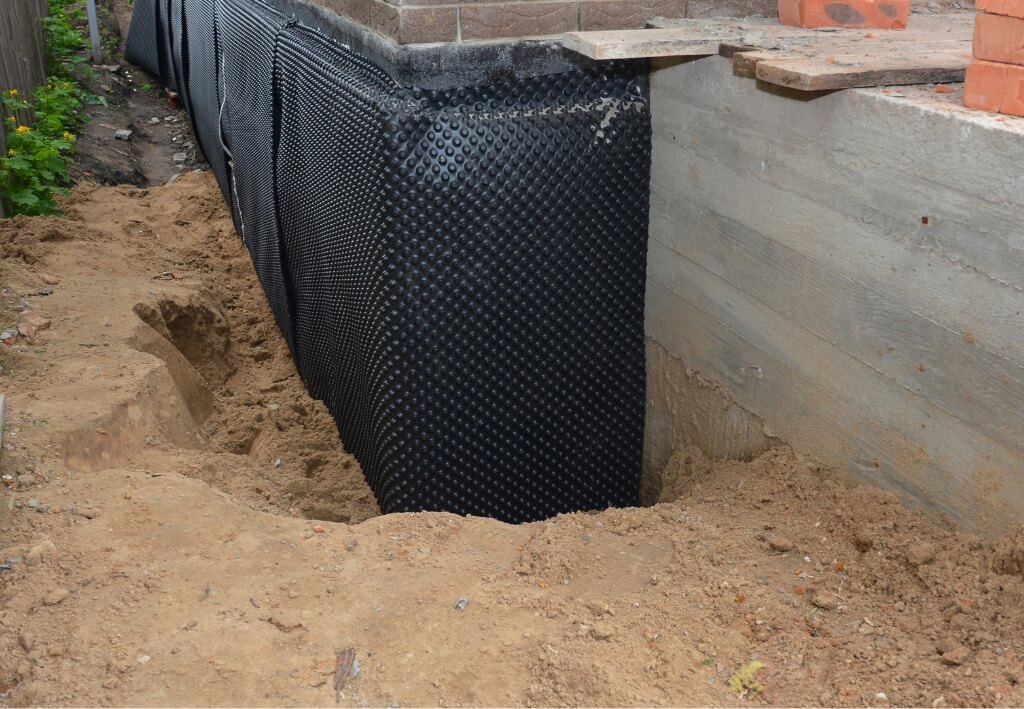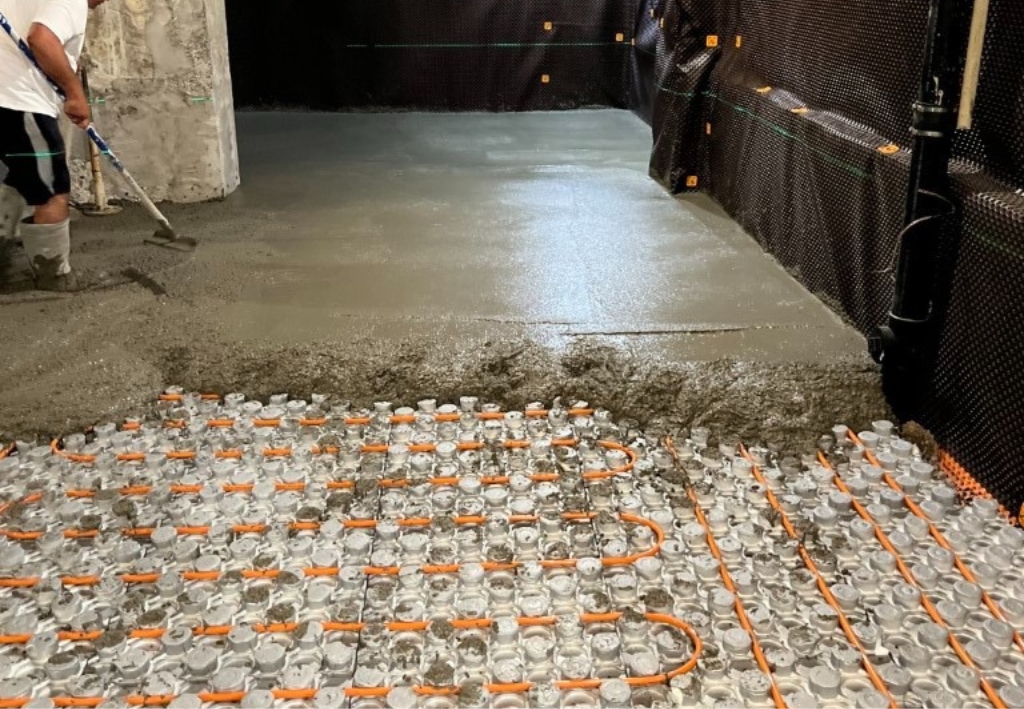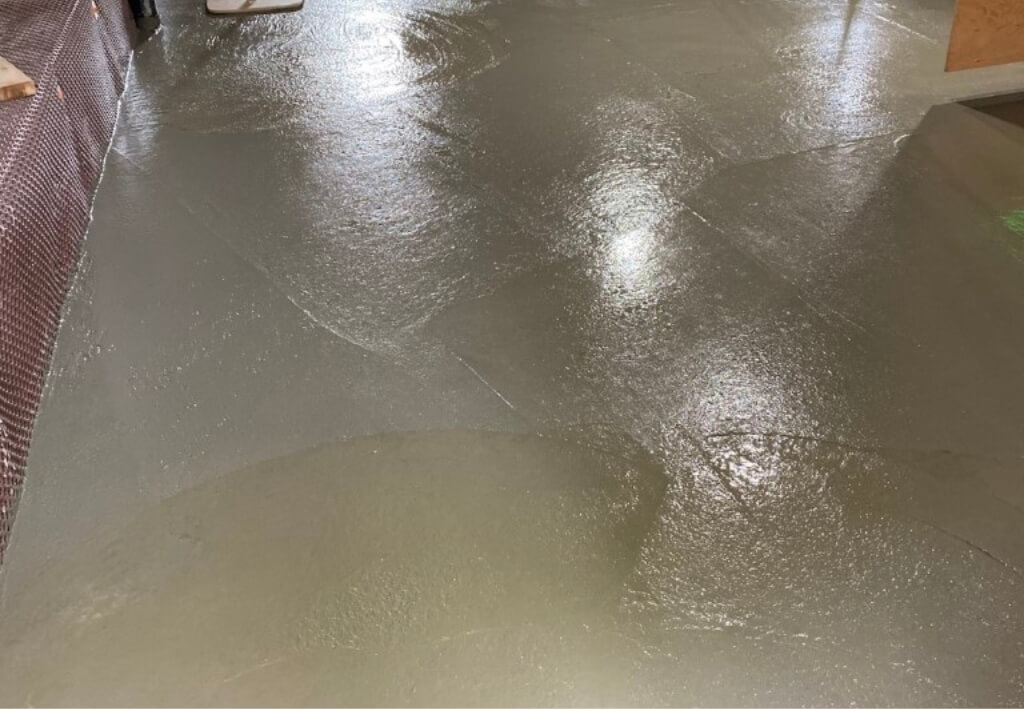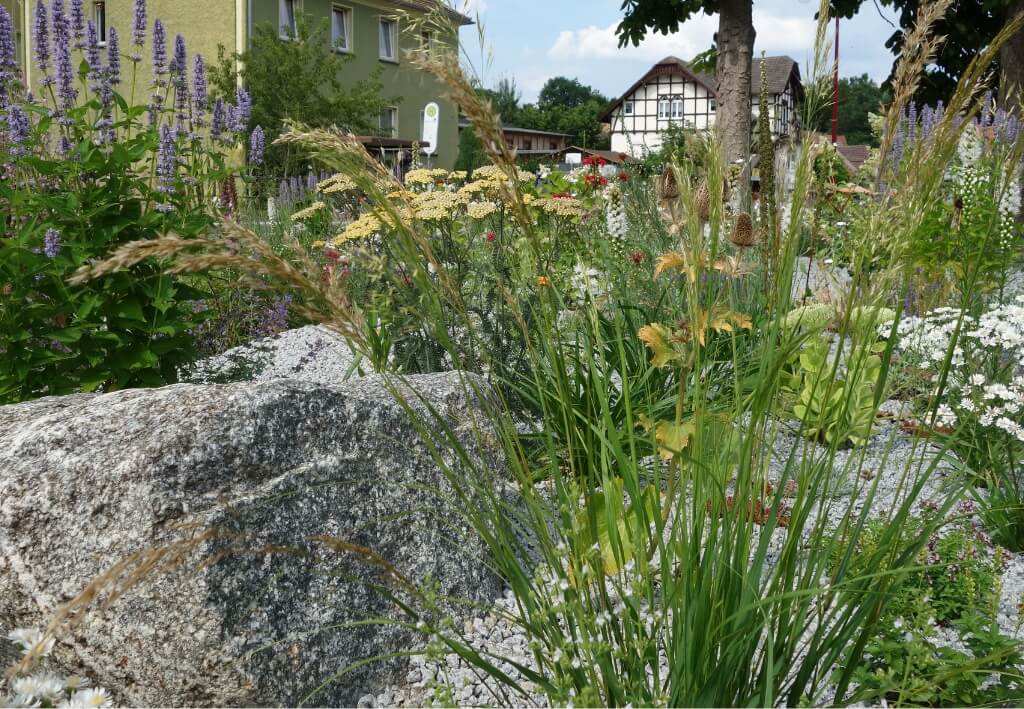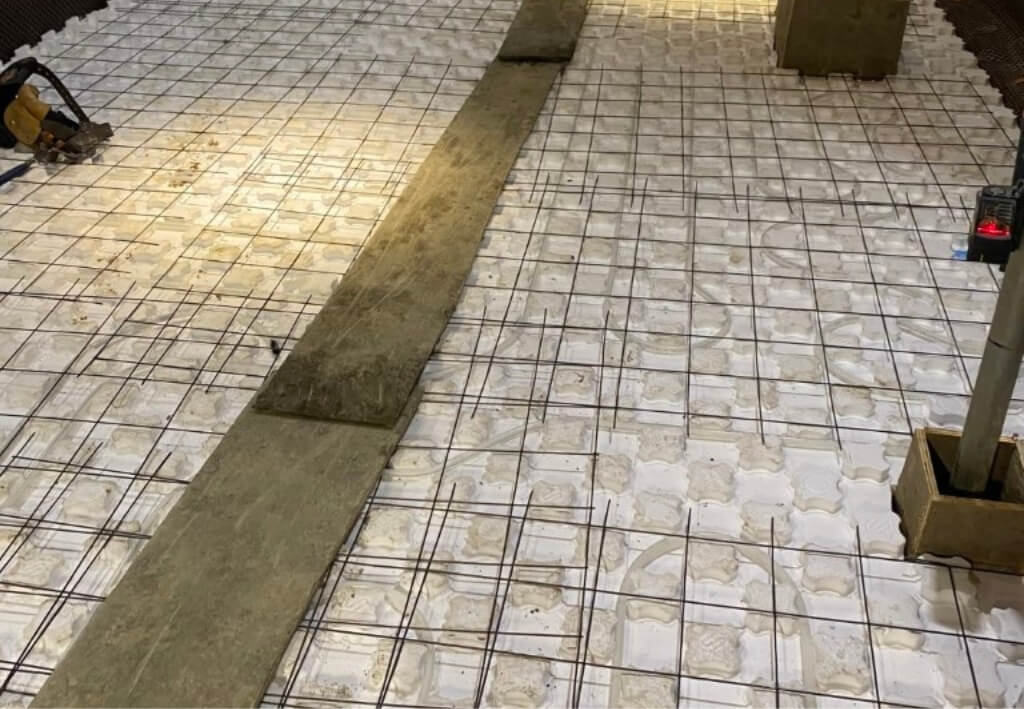In today’s age, many homeowners are looking for sustainable and eco-friendly alternative means to carry on with home improvement. And so are we! A great effect can be created in basement waterproofing as an area where green methods can be created. Traditional methods in basement waterproofing may involve chemicals and materials that are not exactly friendly to the environment. (No thank you!) The good news is that today, modern and sustainable alternatives exist to protect your house and contribute toward a healthy planet as well. With our best eco-friendly options for waterproofing your basement, we can give the best solution to your home and the environment.
Eco-Friendly Basement Waterproofing Materials
The key to green basement waterproofing is using the right materials. Following are some of the options you can avail yourself of:
1. Eco-Friendly Sealants and Coatings
Traditional waterproofing sealants are typically manufactured with volatile organic compounds, or VOCs, which can emit harmful chemicals into the atmosphere. On the other hand, green eco-friendly sealants are prepared from natural materials or low-VOC materials that are not as harmful to the environment and your health.
- Water-Based Sealants: They contain fewer toxic chemicals and are easier to clean. Water-based sealers provide an effective barrier to moisture without the harmful side effects of solvent-based products.
- Silicate-Based Sealants: These kinds of silicate sealers typically penetrate the concrete to create a water-resistant barrier from within. This type of sealer is non-toxic and can be long-lasting as a durable and sustainable option.
2. Recycled and Renewable Materials
Using only materials that are either recycled or made from renewable resources is another way to green your basement waterproofing project.
- Recycled Rubber Membranes: These are made of recycled tires and other products containing rubber material. Not only do they keep waste out of landfills, but they also provide excellent waterproofing and durability.
- Cork Flooring: If you’re finishing your basement, consider using cork flooring that is water-resistant and sourced from renewable resources. Because of this, it’s also naturally mold-resistant for extra protection.
3. Green Drainage Solutions
Drainage is a crucial part of waterproofing, and there are earth-friendly ways to deal with water around your home.
- Permeable Pavers: Unlike traditional concrete that can contribute to runoff, permeable pavers allow water to soak into the ground rather than putting extra pressure on your drainage system.
- Rain Gardens: The best thing would be the installment of a rain garden near your foundation to block the excess water from seeping into your basement. This also encourages local biodiversity by giving native plants a home.
Why Eco-Friendly Basement Waterproofing?
Let’s understand the need for sustainable basement waterproofing. Conventional waterproofing uses harmful chemicals and materials that are non-biodegradable, which can be disastrous to the environment in the long run. By using eco-friendly solutions, you:
- Carbon footprint reduction: The material used in an eco-friendly method is usually recycled and produces less harm to the atmosphere.
- Indoor air quality improvement: Toxic materials that worsen the air quality and create health hazards will be minimized in green waterproofing solutions.
- Sustainability: Using recyclable and renewable materials contributes to sustainability in the construction sector.
- Adding value: As more homebuyers go green, sustainable repairs and upgrades will increase your house’s market value.
Common Eco-Friendly Basement Waterproofing Techniques
Till today, waterproofing of the basements includes conventional techniques such as:
- Interior Sealants: Waterproof coating or sealants applied on the inside walls of the basement to prevent water ingress.
- Exterior Excavation: Digging around the foundation and applying waterproof materials directly on the exterior wall.
- Drainage Systems: Installing interior or exterior drainage systems such as French drains that direct the water away from the foundation.
While these are effective, these methods can be advanced by incorporating environment-friendly practices and materials.
Sustainable Installation Practices
Beyond materials, even the process of its installation can be made greener. Here’s how:
1. Reduce Excavation
Most waterproofing processes require tremendous excavation, which might disrupt the local ecosystem. To reduce such impact:
- Utilize Trenchless Technology: Wherever possible, use trenchless waterproofing methods that will reduce the amount of digging and/or disturbance to your yard.
- Localized Repairs: Instead of digging up the entire foundation, concentrate on areas that are prone to water intrusion.
2. Energy-Efficient Equipment
Various machines and tools are used by different contractors for waterproofing. It is at this point that you may choose to hire a contractor who uses energy-efficient appliances so as to reduce carbon emission into the environment.
3. Recycle Waste Products
Waterproofing has a tendency to generate waste, particularly if it involves removing old materials. Try to work with those contractors who have a good recycling program so as to ensure that most of the materials are kept out of the landfill sites.
The Role of Vegetation in Eco-Friendly Basement Waterproofing
Here’s a bonus tip! Strategically planting can complement waterproofing by taking care of the water naturally coming into your home.
1. Native Plants
Plant the native vegetation around your home as this would greatly help in soaking up excess water with ease. Native plants are adapted to the conditions of the climate in your area and usually require very little water for survival. This means that they will thrive with minimal needs of maintenance whereby it will be friendly to the environment.
2. Green Roofs
If you’re planning extensive waterproofing, one creative solution is a green roof. This, in simple terms, is the cultivation of vegetation on the roof that acts to absorb rainwater, insulate, and help to reduce the heat island effect common in cities like Toronto, Hamilton, and Mississauga.
Choose the Right Contractor
One key question when it comes to embarking on a working relationship with a contractor: find a contractor who shares your enthusiasm for sustainability. Here’s how you can do that:
- Look for Green Certifications: It is more likely that a contractor with certifications from green building organizations is using eco-friendly practices. (Like IcyReno!)
- Ask About Their Materials: Ask the type of materials that they use and if they offer eco-friendly options.
- Discuss Waste Management: Make sure that the contractor has a plan with regard to recycling or proper waste material disposal.
Long-Term Benefits of Eco-Friendly Basement Waterproofing
While the upfront cost of green waterproofing might be a little more than usual, it pays for itself many times over in the long run. All eco-friendly materials are usually more durable and thus minimize the rate of repairs and substitution. Improved air quality and increased energy efficiency add to a much healthier and more comfortable living environment.
Economic Benefits
- Less Maintenance Costs: More often, the material used is durable, which reduces the rate of repair in the long run.
- Energy Efficiency: Better insulation provided by eco-friendly basement waterproofing methods will save your heating and cooling costs.
Environmental Benefits
- Smaller Carbon Footprint: Through the use of recycled materials and processes, the ecological footprint of the waterproofing process becomes reduced.
- Healthier Ecosystem: Minimizing excavation and using local plants will keep the ecosystem intact.
Eco-Friendly Basement Waterproofing
Waterproofing a basement in an ecological manner is not only a matter of protection from water for the sake of one’s house, but also one of making choices supportive of the environment and the future. Successfully waterproof your basement in an environmentally friendly way by choosing green materials, practicing sustainable methods, and hiring a contractor committed to eco-friendly solutions. Eco-friendly basement waterproofing can be the best solution to solve problems or take care of a future without water issues. It’s a responsible and effective solution that pays for itself many times over. Would you like more information on your options? Contact Icy Reno today to get started on your journey to a greener, more sustainable home.
